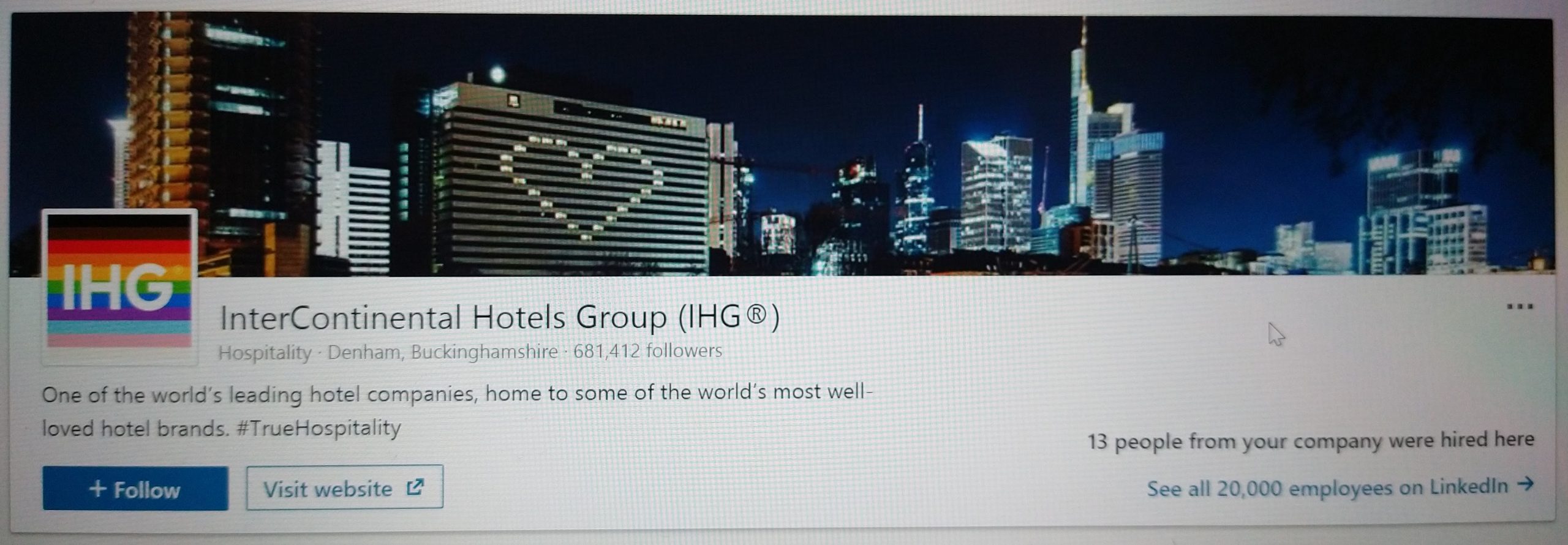Hey Nerds,
You might have picked up on the last post that I mentioned I was employed for an airline (for now). Well today was the first day that I am no longer working for said airline. I’ll save you from the particulars, but suffice it to say that I’m actively searching for the next step in my professional journey.
I wanted to post about this for a couple of reasons.
- Sometimes it feels like the world is dumping on you. I wanted to put this out there for anyone else who has found themselves unemployed, for whatever reason, in 2020. According to the Bureau of Labor Statistics, unemployment is currently sitting at 13.3% for the nation (as of June 5). That’s 21 million Americans who are unemployed. You are not alone and not currently having a job does not define you or is in any way indicative of your talent and worth.
- Change is not a bad thing. Did I enjoy my job? Yes. I loved working with my teammates and various partners outside the company. I believed in the work I was doing and the initiatives I was trying to move forward. Saying goodbye sucked. But I know that the change before me is a good thing. It’s going to push me professionally to grow and develop new skills and connections.
- This is not the first time I’ve found myself in this position. In 2009, my contract was terminated a year early due to state budget cuts. In 2013, my position was eliminated due to organizational restructuring. And here we are in 2020. Am I a little worried? Sure. I’m a little terrified that I won’t find a job as quickly as I have in the past, but I definitely believe in myself. I’ve found jobs each time AND the job ended up pushing me to bigger and better things.
So yeah, I’m staying positive. I’ve got to stay positive, because the other option isn’t really an option. Right?
There are a few things I’ve learned during my stints unemployed, and general job searches, that I feel are worth sharing. This is by no means comprehensive or guaranteed to get you a job, but I’ve found it helped in the past.
- File for unemployment immediately. Sometimes it can take awhile for the government office to work through your submission. Even if you aren’t able to immediately start collecting, say you received severance, file and start following the steps. While I was unemployed in Arizona, I filed for unemployment and never received any benefits. Honestly, I was OK with that because I was able to find a job within 6 weeks of losing my previous one. However, had I not filed and it took longer than 6 weeks I would have found myself in a very tight financial situation had not applied from day 1.
- Read EVERYTHING twice. Unemployment steps. Job listings. Your résumé. You’ll increase the likelihood of hitting all the steps, getting past the Applicant Tracking System, and catching typos. Plus, if you have a second pair of nerdy eyes available to you, have them give everything a look over. They might interpret something different or catch a typo you missed.
- Tailor your résumé for every job. I know, I know. This sounds like a LOT of work and a pain in the ass. I’ll readily admit, it is. But remember the Applicant Tracking System (ATS) I mentioned above? That’s the gate keeper between you and a hiring manager. The ATS is a system used by companies to track, sort, and score applications quickly without requiring humans to read hundreds of applications. These systems are looking for phrases and keywords IN the job description. You’ll increase your likelihood of scoring higher and getting your résumé in front of the eyes of the hiring manager by matching those keywords.
- Utilize your network. LinkedIn is a game changer. As you grow your professional network, you grow your connections exponentially. When applying for jobs, you can search for an employer and on their page it will show people employed there who have worked at your previous employers. Here’s your opportunity to see if you A) know anyone personally or B) if any of these individuals have shared connections you can work for introductions. These introductions afford you the opportunity to learn more about the company, culture, and position/team. Plus, you might have the ability to share your résumé directly with the hiring manager and bypass that stupid ATS.

- Track your applications. Take the time to start a spreadsheet with all of the jobs to which you have applied. This sounds boring, but I promise you it’s worth it. If you’ve filed for unemployment, you’ll probably have a required number of jobs you need to apply for each week. Tracking this in a spreadsheet will make it easier to know you’ve hit your required number and prove it, if necessary. Track the date you applied, the title, company, how you applied (directly through the company website? LinkedIn? in person?), have you heard back, did you get an interview (phone or in person?), etc. If you don’t have Microsoft Excel, Google Docs works just as well and is accessible from anywhere you have an internet connection.
- Save a copy of the job description as you apply. File it away with a copy of the resume you used for that application. Don’t run the risk of the company taking down the listing after they’ve begun the interview process and you are left trying to prepare for an interview without a description for the job!
- Research the company. Read about their company goals, mission, leadership, etc. on their company website. Look up reviews on Glassdoor or LinkedIn. Make sure this is a company for which you would want to work and that their goals and mission align with your goals and morals. Save yourself from potentially loathing your workplace because you didn’t research ahead.
- Prepare for your interview. This sounds like a no brainer, but you should put in the effort to prepare for your interview. Look up potential interview questions online and write out your answers for each question. Whenever possible, and appropriate, aim to answer with the STAR method. Write our sample stories in the STAR method so that when you are asked a question you can answer conversationally and with confidence. And PRACTICE PRACTICE PRACTICE. Find a fellow nerd and conduct a mock interview. Answer questions multiple times and work out the uhs, ums, and other verbal ticks when nervous or formulating an answer. Practice making eye contact and remember, it’s OK to ask to think about an answer to a question. It shows you’re putting careful consideration into your response.
Fun Fact: the “STAR” in STAR method is an acronym for:
Situation: Set the scene and give the necessary details of your example.
Task: Describe what your responsibility was in that situation.
Action: Explain exactly what steps you took to address it.
Result: Share what outcomes your actions achieved.
Employers want a focused answer and this helps you walk the interviewer through your story. This is taught in MBA programs to help prepare for job interviews and you can get the same preparation by researching the STAR method online and practicing at home. - Always follow up an interview with a thank you. When appropriate, write a handwritten card to each person with whom your interviewed. If that’s not practical, follow up with an email. You should have taken notes during each interview, so use those to reference something from your discussion and reiterate why you feel like you are the right candidate for the job. You’ll jump back into the top of their mind and you’ll show your commitment and enthusiasm for the position.
- Go easy on yourself. Job hunting is hard work. It’s like a full-time job without the pay and benefits. You can easily get caught up in trying to cast a wide net, and focused on getting a job as soon as possible, that you can exhaust yourself and deprioritize your mental well-being. Remember to take some time for yourself. Give yourself permission to take an afternoon off from the hunt and do something you actually enjoy. I won’t lie to you; it’s hard to mentally take the break when you know you’re unemployed, but you have to take care of yourself so you can give your best when you do land an interview. If that’s watching all of the Die Hard movies in an epic marathon and eating some microwave popcorn while drinking ice cold soda, DO IT. You are worthy of this me time.
With that, I want to say to everyone out there hunting for jobs that I’m thinking of you and wish you nothing but the best of luck. We’ll get through this together and I promise I’ll keep you all posted on my journey.
Cheers,
Head Nerd
